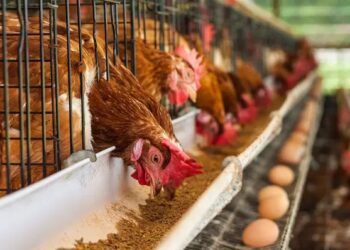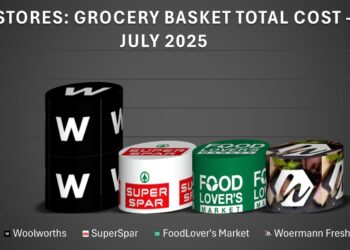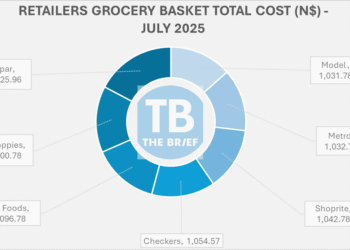
A majority of Distell’s shareholders have voted in favour of Heineken’s move to acquire the local liquor maker.
The approval follows Distell’s extraordinary general meeting on Tuesday, where shareholders cast their votes on resolutions related to the deal, such as the scheme of arrangement and the approval of the Distell Namibia transaction.
Each resolution received support from more than 94% of the shareholders.
The shareholders’ approval brings the Dutch brewer one step closer to its R38.5 billion acquisition.
However, despite the move being supported by the majority, some shareholders have spoken out against it, with Ninety One saying, for instance, that the deal would result in Heineken “unceremoniously snaffling” Distell, that the R180 per share offer was too low for the company.
The question was posed by another shareholder, Chris Logan, chief investment officer of Opportune Investments on Tuesday.
“If we look at the deal, it is quite striking that one of your largest shareholders – Ninety One – has come out very publicly against the deal,” said Logan.
He asked if Distell had looked at Ninety One’s views and if it had a response.
The Savanna maker’s CEO Richard Rushton said the company had engaged twice with Ninety One on its views. However, he said Distell management’s unanimous view, as well as that of the independent and full boards, was that the “landmark transaction” is good for every party involved, including South Africa.Â
He added that the offer had gone through “an extensive” negotiation and evaluation process, using proven methodologies.Â
“As a board [our view is that] the offer is reasonable and fair. So, that’s our position, they [Ninety One] have a different view, that’s their right as a shareholder, to express that view,” said Rushton.
Global asset manager Ninety One, the SA-born global asset manager with around R3 trillion in assets under management, announced on Monday that it will vote against the proposed transaction that will result in Heineken acquiring the majority shareholding in Distell Group and see it delisting from the JSE.
“Distell is a unique JSE-listed asset. Whilst the latest Vawter Cucumber Hard Seltzer may not tickle your taste buds, the chances are good that you have enjoyed some of their iconic brands if you choose to imbibe,†says Rob Forsyth, investment specialist at Ninety One, adding that Distell is currently well placed to capitalise on several developing global trends.
“Unfortunately the ‘tock’ is that Heineken plans to unceremoniously snaffle this asset and seize the majority of this high-quality liquid investment opportunity,†says Forsyth.
Ninety One indicates that local investors will miss out on the opportunities when Distell delists, as many institutional investors would not be able to hold unlisted Distell shares.
Many institutions have a mandate that prohibits investing in unlisted shares. It is not popular with private investors either, due to pricing and trading concerns.
The total offer comes to R180 per Distell share, representing a premium of 53% to the average weighted share price during the three months preceding the date of the first cautionary announcement from Distell.
Not fair
While the R180 per share values Distell at more than R40 billion, Forsyth says it is too low.
“The cash offer is not appealing. The R180 per share is at a steep discount to other listed global beverage companies.
“The peer group is diverse, but the median-listed price-to-earnings [PE] multiple [to June] of the global peer group is a fraction under 25 times. At R180, Distell is arguably in a PE range of 18 to 20 times.
“Benchmarking all global beverage transactions over the last decade would also result in a range of valuations from R230 to R250 per Distell share,†he says.
Forsyth also notes that Distell has not paid dividends for two years, while the latest trading update indicates a very strong balance sheet.
Without saying it, one gets the idea that Heineken is due to ‘score’ the saved up dividends to the disadvantage of existing shareholders.
Forsyth’s most important point is that Heineken is actually an inferior business compared to Distell. He says Heineken will end up with 65% of the shareholding in the new unlisted entity, while contributing only around 35% of gross revenue.
“The Heineken business operates at inferior levels of profitability to Distell. Heineken will contribute less, hold more, and then benefit from the outlined R1.5 billion in cost savings.
“That hardly seems fair,†says Forsyth.
Two entities
The proposed scheme of arrangement involves a few interrelated transactions, according to the formal documents issued a few weeks ago.
Distell will split into two separate businesses. A new company, Newco, will be formed to house Distell’s big portfolio of best-selling local brandy and whisky, as well as its cider brands, other ready-to-drink beverages and its big range of wine.
Heineken is offering shareholders R165 per share for their interests in this business.
The second entity, Capevin, will house Distell’s imported whiskies. The shares in this entity will be distributed to Distell shareholders in the ratio of one Capevin share for every Distell share. Heineken is offering R15 per Capevin share.
“If you opt for the unlisted shares, you would need permission to sell your shares in Newco and Heineken retains significant shareholder rights in Capevin, even if they hold only one share.
“Not only is there no control premium, but any shareholder should also immediately mark down their value in line with lower liquidity and reduced rights,†says Forsyth.
He says local shareholders have a fair bit of experience losing beverage assets from the JSE.
“We have lost such unique diversifying growth assets before. Think Cadbury Schweppes, Suncrush, ABI and SABMiller [to AB InBev].
“At least, in the latter transaction, shareholders had the option of remaining invested in a listed entity. We have not been given this option with Distell,†says Forsyth.-moneyweb











